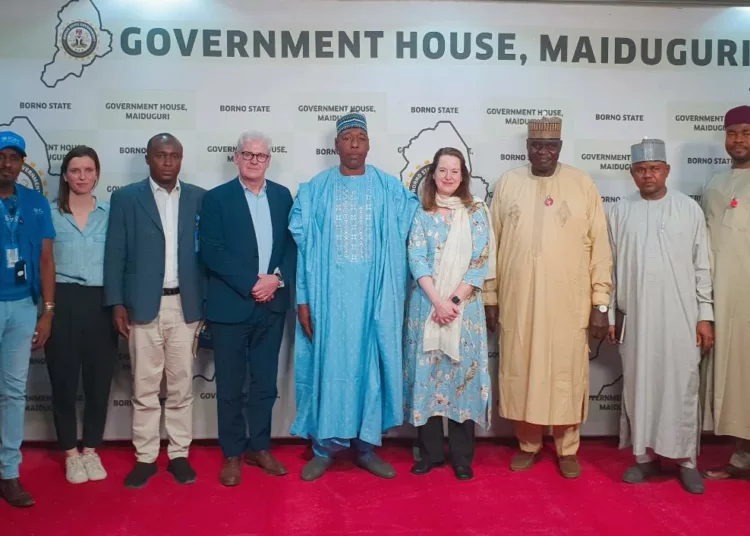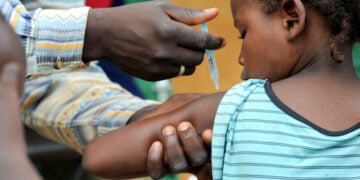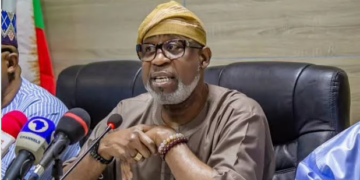The Borno State Government, in collaboration with the International Organization for Migration (IOM), held a strategic meeting to address the humanitarian needs of internally displaced persons (IDPs) within the state and refugees from Borno who are in neighboring countries like Niger and Cameroon.
The meeting was disclosed on Tuesday when IOM Director General Amy Pope and Chief of Mission to Nigeria Laurent de Boeck paid a courtesy visit to Borno State Governor, Babagana Umara Zulum, at the Government House in Maiduguri, the state capital.
The focus was to explore potential avenues and establish an effective partnership with the state.
Governor Zulum, who received the IOM delegation, raised concerns about the food shortages faced by roughly three million citizens in IDP camps. He expressed fear that groups like ISWAP and Boko Haram terrorists could exploit this vulnerability and attract individuals from the camps, posing a significant threat.
He maintained that addressing the root causes of the insurgency, such as poverty, infrastructure deficits, and climate vulnerability, is the most effective way to prevent this.
“With the Northeast’s population currently around 35 million and projected to reach 40 million, with 60% being youths, the emphasis lies in the risk of youth recruitment into extremist groups, and its potential regional and continental consequences,” Governor Zulum stated.
“Therefore, we resolved and asked ourselves, what shall we do? We agreed with the community that they wanted to return home. You see, during my campaign promises, I promised to return them to their ancestral homes if elected, but in a very dignified manner. We must provide security during their return, as well as schools, healthcare, water supply, and other means of livelihood.
“In that regard, we said we don’t need a short-term solution, which is immediate humanitarian support. We are looking for medium and longer-term sustainable solutions that will address the crisis once and for all. So, based on these reasons, we started resettling people back to their various localities in a very dignified manner, not by force.
“So far, within the last 4 years, we have resettled more than one million people. People have started farming, having access to agricultural land, where access to land has increased by more than 400%.”
Following the death of Boko Haram leader, Abubakar Shekau, the state government has experienced an influx of repentant Boko Haram members, surpassing 160,000 in the last two years, according to the governor.
He believes this has contributed to an improvement in the overall security situation.
While expressing gratitude to existing partners, Governor Zulum identified two crucial needs: support from an organization aligned with Borno State’s objective to dignify the resettlement of people according to the Kampala Declaration and assistance in managing repentant Boko Haram members.
Earlier, IOM Director General Amy Pope expressed her satisfaction with being in Maiduguri and learning about the government’s intervention areas. She noted that the government’s forward-thinking and future planning align with the direction IOM intends to pursue.
Amy maintained that short-term solutions are no longer sufficient, especially considering the emergence of communities and children growing up in camps, which is not a sustainable solution.
She expressed IOM’s commitment to assisting in resettling people, ensuring they have a future with livelihoods, support, and necessary training for independence.
Amy highlighted the collaborative nature of member-state organizations and emphasized the importance of working in coordination under the government’s prioritization.





